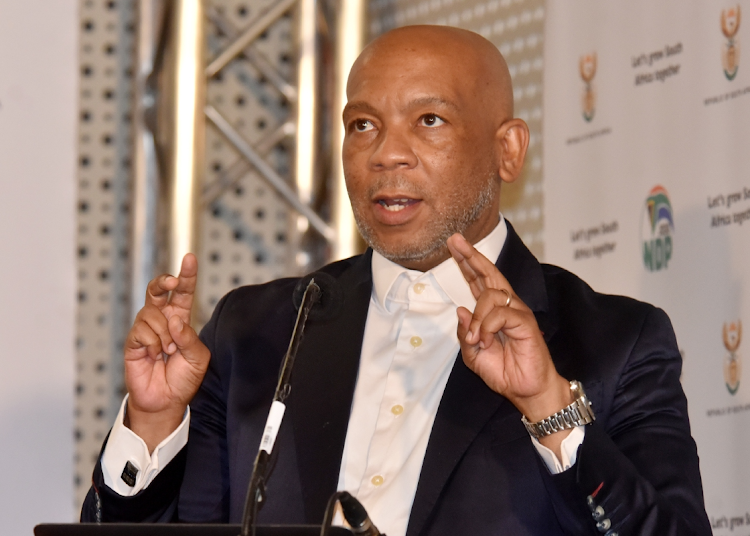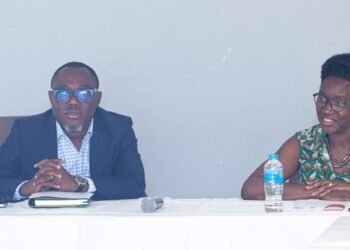Minister of Electricity Kgosientsho Ramokgopa has reiterated that while Eskom is working hard on improving its generation system, citizens can still expect load shedding.
Providing an outlook on Eskom’s generation capabilities during a media briefing on Tuesday in Pretoria, the Minister explained that the majority of units remain unreliable and this is being addressed through the planned maintenance that Eskom is conducting routinely.
Due to legacy issues including under investment at Eskom and the entity not having sufficiently planned for maintenance, South Africa’s grid is unreliable.
“We will have periods of days of no load shedding and there will be days of load shedding. Eskom has announced its summer outlook and it makes the point that we should not be at more than Stage 4 level of load shedding.
“While demand was low during the week 22- 29 December 2023, Eskom was working to address issues of its fleet and used the opportunity to carry out planned maintenance.
“We have been working during the festive season to ensure that we address issues of the fleet to continue to perform but also readying the fleet to ensure that once there is a ramp up of demand, the units are able to return back to service and remain in service while delivering efficient megawatts (MW),” Ramokgopa said.
The Minister pointed out that Eskom is beginning to decrease its planned maintenance, as they are expecting demand to increase.
While in December 2022 South Africa experienced load shedding, Eskom had three units back last December at Kusile, which ensured that there were periods of no load shedding.
“If you had to look at the work that has been done at Eskom, they have reduced repeat failures. We have additional buffer for instances of a cluster of units failing where you do not have to initiate load shedding or if you do, it is not at intense levels.
“Unit 1 at Kusile experienced significant delays in relation to the timeline to return to service, which was set for June last year but it returned five months later due to outage slips. We are confident that the work that has been done by the generation team has ensured that we will not have a repeat when we want to return unit 2, which is currently out,” he said.
The Minister reminded citizens that Koeberg unit 1 and 2 were extending the license of the only nuclear power station in the country.
“We had to do a significant amount of work to meet the regulatory requirements and compliance so we can get the license extensions… so these units were out. As part of this robust exercise, unit 1 in Koeberg is now on full load. It has passed the full load tests. There is a plethora of tests that need to be run and the test was passed on 30 December.
“Now unit 1 in Koeberg is unleashing the MWs that are required and we hope it will continue to do that for the next 20 years. Another development is the synchronisation of Kusile Power Station’s unit 5.
“That power is intermittent. It is doing a number of tests, and it will go into full commercial operation for an average period of six months so they continue to do the tests but as they continue to do the tests, it does give us MWs,” Ramokgopa said.
“Unit 5 is running at 60% and there are a lot of things that need to be done such as balancing and optimisation tests so that we are sure when the unit is in commercial operation so essentially giving us MWs uninterrupted.”
Integrated Resource Plan
The Minister called on the public to make submissions on the draft Integrated Resource Plan (IRP) 2023 that was issued by Minister of Mineral Resources and Energy, Gwede Mantashe, for public comment in Government Gazette no 49974 of 04 January 2024.
“I want to urge that your comments are not restricted to public commentary, engagements and with the media. That does not amount to a submission. A submission means you make a written response of ideas of what you think of the IRP and submit it as required.
“As it stands, the IRP represents the views of Cabinet and we want to know what the public thinks. I want to encourage you to make submissions and as and when the DMRE offers an opportunity to make oral representation, I encourage you to do that as well,” Ramokgopa said.
The IRP is an electricity generation plan that seeks to ensure security of electricity supply by balancing supply with demand, while taking into account the environment and total cost of supply.
The purpose of this publication is to solicit public comments on the assumptions, input parameters, scenarios, and observations made. Comments submitted will be considered when drafting the final policy adjusted plan, which will map out the future energy mix for the country.






























































